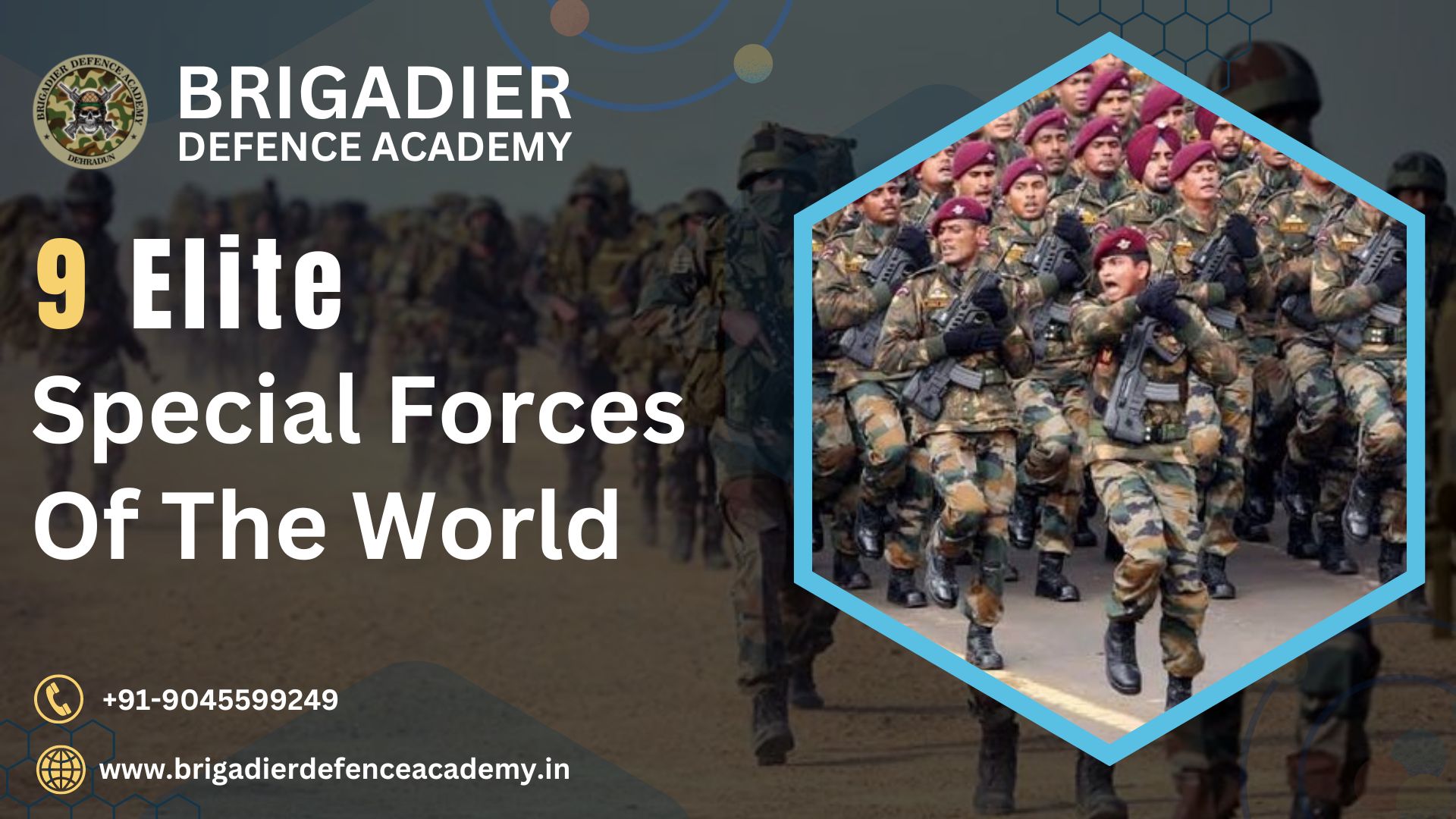- Posted on
- Manya
- No Comments
Introduction of Special Forces Units:
Special Forces units are elite military groups trained to perform unconventional and often high-risk missions with precision, stealth, and efficiency. These units are comprised of highly skilled personnel who undergo rigorous training and selection processes. Throughout history, various countries have established their own Special Forces units to handle specialized operations ranging from counter-terrorism and hostage rescue to reconnaissance and direct action missions. In this article, we will explore nine of the world’s most renowned and formidable Special Forces units, highlighting their capabilities, training, and notable operations.
United States Navy SEALs (SEa, Air, Land):
The Navy SEALs are arguably the most well-known Special Operations force globally. Established in 1962, they are the primary special operations force of the United States Navy. SEALs undergo an intense selection process known as BUD/S (Basic Underwater Demolition/SEAL) training, followed by specialized training in various combat tactics, including close-quarters combat, marksmanship, and underwater operations. SEAL teams are proficient in a wide range of missions, including direct action, special reconnaissance, counter-terrorism, and hostage rescue. They gained international prominence for their role in Operation Neptune Spear, which led to the capture of Osama bin Laden in 2011.
British Special Air Service (SAS):
The Special Air Service, or SAS, is a renowned Special Forces unit of the British Army. Established during World War II, the SAS is known for its expertise in counter-terrorism, hostage rescue, and covert reconnaissance. SAS soldiers undergo a grueling selection process known as “Selection,” which tests their physical and mental endurance. Following selection, recruits undergo an intense training regimen that covers various skills, including parachuting, navigation, and close-quarter battle. The SAS gained widespread recognition for their successful hostage rescue operation during the Iranian Embassy siege in London in 1980.
Russian Spetsnaz:
The term “Spetsnaz” refers to various Special Forces units within the Russian military. These units trace their origins back to the Soviet era and are renowned for their proficiency in unconventional warfare and counter-terrorism. Spetsnaz operatives undergo rigorous training in hand-to-hand combat, firearms proficiency, and survival skills. They are known for their ability to operate behind enemy lines and carry out missions with precision and stealth. While the activities of Russian Spetsnaz units are often shrouded in secrecy, they have been involved in various high-profile operations, including the storming of the Moscow theater during the Nord-Ost siege in 2002.
Israeli Sayeret Matkal:
Sayeret Matkal is an elite Special Forces unit of the Israel Defense Forces (IDF), specializing in reconnaissance, intelligence gathering, and counter-terrorism. Established in the 1950s, Sayeret Matkal is known for its highly selective recruitment process and rigorous training regimen. Members of the unit undergo extensive training in various combat skills, including parachuting, sniping, and close-quarters combat. Sayeret Matkal gained international attention for Operation Entebbe in 1976, where they successfully rescued hostages held by hijackers at Uganda’s Entebbe Airport.
French Special Forces (Commandement des Opérations Spéciales):
The French Special Forces, collectively known as the Commandement des Opérations Spéciales (COS), consist of various specialized units within the French military. These units are trained to conduct a wide range of missions, including counter-terrorism, hostage rescue, and unconventional warfare. Recruits undergo rigorous selection and training, which emphasizes physical fitness, marksmanship, and tactical proficiency. The French Special Forces have been involved in numerous operations worldwide, including anti-terrorism efforts in Mali and hostage rescue missions in Africa.
German Kommando Spezialkräfte (KSK):
The Kommando Spezialkräfte (KSK) is the elite Special Forces unit of the German Army, specializing in counter-terrorism, hostage rescue, and special reconnaissance. Established in 1996, the KSK is highly selective in its recruitment process, with candidates undergoing rigorous assessment and training. KSK operatives are trained in various combat techniques, including urban warfare, close-quarters combat, and airborne operations. The unit has been deployed in support of international missions, including operations in Afghanistan and the Balkans.
Australian Special Air Service Regiment (SASR):
The Special Air Service Regiment (SASR) is the Special Forces unit of the Australian Army, renowned for its expertise in special reconnaissance, counter-terrorism, and direct action missions. Established in 1957, the SASR conducts operations both domestically and internationally, often in support of Australian foreign policy objectives. SASR operators undergo demanding selection and training, which includes parachuting, amphibious operations, and survival skills. The unit has been deployed in various conflicts, including Iraq and Afghanistan.
Canadian Joint Task Force 2 (JTF2):
Joint Task Force 2 (JTF2) is Canada’s elite Special Operations unit, specializing in counter-terrorism, hostage rescue, and direct action missions. Established in 1993, JTF2 is highly trained and equipped to handle a wide range of operations, including domestic and international threats. Members of JTF2 undergo rigorous selection and training, focusing on marksmanship, close-quarters combat, and tactical proficiency. While details of their operations are often classified, JTF2 has been involved in numerous high-profile missions, both at home and abroad.
Indian Special Forces (Para Commandos):
The Indian Special Forces, commonly known as the Para Commandos, are elite units of the Indian Army specializing in unconventional warfare, counter-terrorism, and special reconnaissance. Established in the 1960s, the Para Commandos are highly trained and equipped to operate in diverse environments, including mountainous terrain and urban areas. Recruits undergo a demanding selection process followed by extensive training in various combat techniques, including jungle warfare, amphibious operations, and explosive ordnance disposal. The Para Commandos have been involved in various counter-terrorism operations, including the 2008 Mumbai attacks.
Conclusion:
Special Forces units play a crucial role in modern warfare, conducting missions that require precision, stealth, and adaptability. The nine elite Special Forces units highlighted in this article represent some of the most skilled and formidable military forces in the world. Through rigorous selection, intense training, and a commitment to excellence, these units stand ready to tackle the most challenging missions and threats, safeguarding their respective nations’ security and interests on the global stage.







